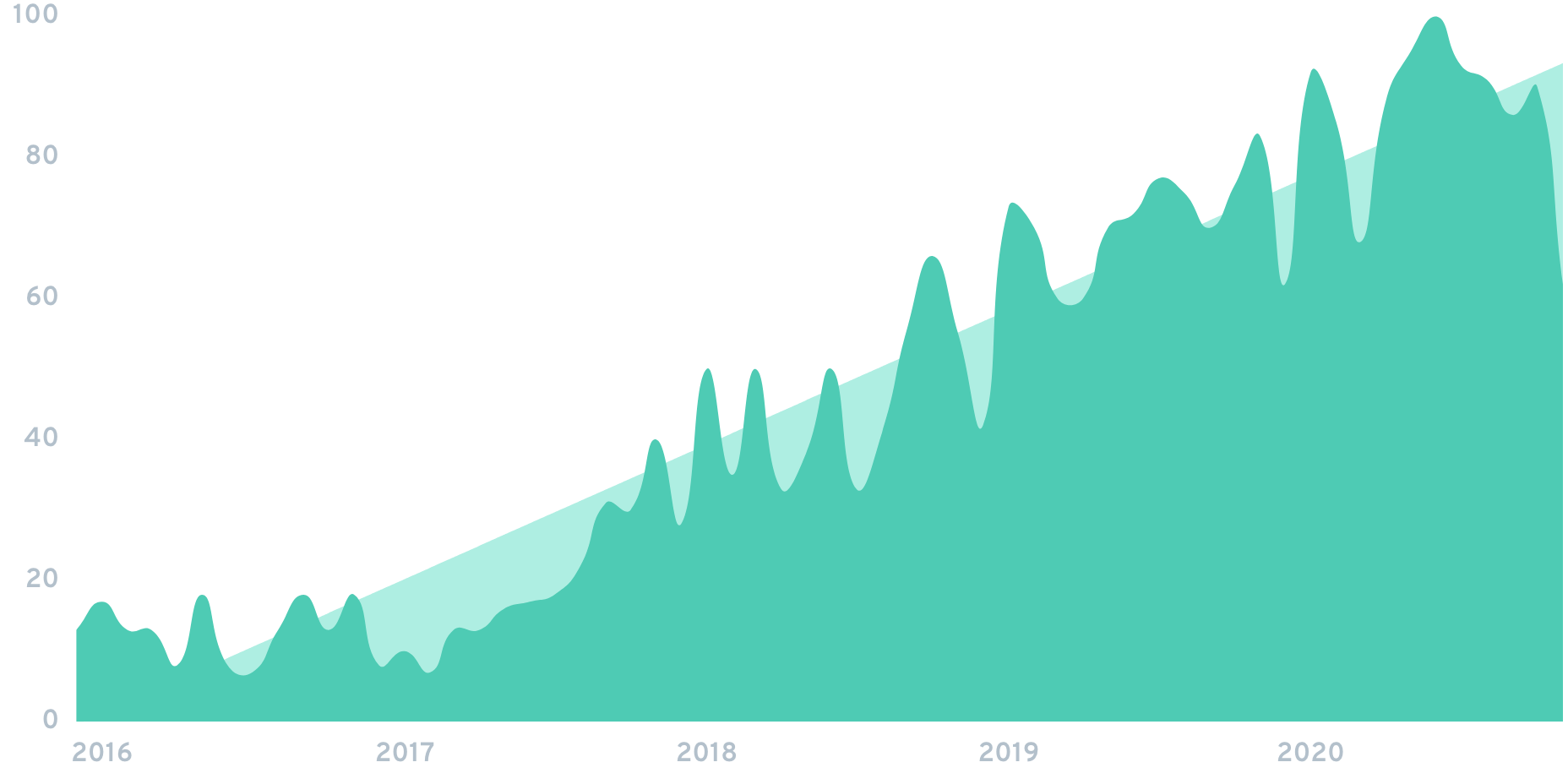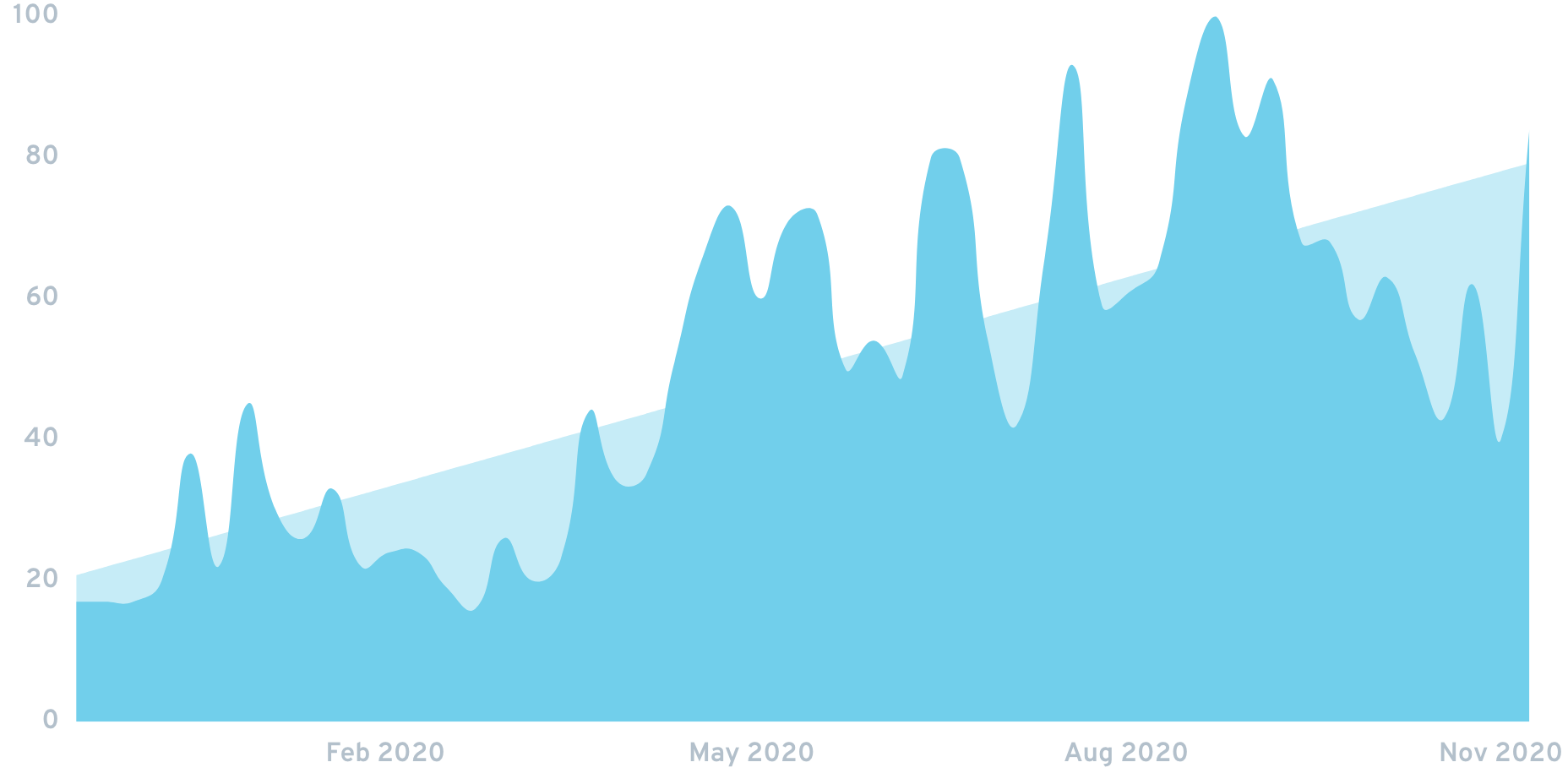|
Channing here. Let's talk about the biggest story of the day. No, not Trump and the [US election](https://apnews.com/hub/election-2020). And no, not the rap battle taking place between a [resurgent COVID-19](https://www.cnn.com/2020/11/18/health/us-c
Is Social Media Going Indie? · Apple's $Gift to Devs · Breaking 1,000 Users
Channing here. Let's talk about the biggest story of the day. No, not Trump and the US election. And no, not the rap battle taking place between a resurgent COVID-19 and a promising vaccine.
My bad. 2020 laughs at the suggestion that we'll all agree on which story is the "biggest."
So here you go: social media. Let's talk about that. In particular, let's talk about that moment yesterday when Mark Zuckerberg and Jack Dorsey appeared before the US congress and couldn't even agree on whether their platforms were addictive. 😂

In a way, it's all fun and games. But for indie hackers, the public backlash against Big Social Media might lead to changes in how we do business.
More on that below. Here's the newsletter in a nutshell (browser version here):
-
"Indie" and "social media" don't typically go together. But cultural and political pushback against Big Tech is shaking things up.
-
In the news: Apple's indie-friendly App Store announcement. How to hack Hacker News. Airbnb's IPO.
-
Get an early scoop on two products that everyone will be talking about in six months, including an open-source database.
-
An indie hacker shares how he broke 1,000 paid users and surveillance capitalism at the same time.
Special thanks to Bobby Burch, Josh Howarth, James Fleischmann, and Marko Saric for contributing to this newsletter. Want to contribute a piece of your own? Check out this doc for an idea of what I'm looking for. —Channing
🕵️ Is Social Media Going Indie?
by Bobby Burch
If you're an indie hacker, you're probably using social media for distribution.
And even if you haven't concerned yourself with recent debates over privacy and censorship, the implications of those debates will affect how you reach people.
The concept of Twitter, for example, I just don’t like the fact that we have to give up all of our privacy and overall digital lives.
That's @hiramfromthechi, an indie hacker. And he's not alone. People are demanding alternatives to Facebook, Twitter, and YouTube. And as the market answers that demand, audiences will splinter across a more distributed set of platforms.
Mastodon has emerged as a viable, albeit small contender to Twitter. The open-source, micro-blogging network enables users to self-host “instances” that they can make public or private. Launched in 2016, Mastodon’s decentralized platform already has 4.4 million users.
Parler has billed itself as the “free speech” alternative to Facebook and has welcomed an exodus of conservative-leaning users that claim their views have been censored. Already with more than 2.5 million users, the platform keeps personal data confidential and doesn’t sell to third parties.
And if Parler is the right's answer to social media censorship, Telepath is the left's. It's still in closed beta for now, but it will enforce a series of rules aimed at countering abuse and disabling the spread of fake news.
The emergence of all of these platforms — and others like MeWe, PixelFed, and Diaspora — also create opportunities for indie hackers to create new audiences. How such companies could face risks to their reputation by leveraging such platforms remains to be seen. However, there is a clear opportunity to reach a burgeoning digital audience.
Another consideration for indie hackers — and consumers generally — is the shifting landscape of how platforms are policing content. Under Section 230 of the 1996 Communications Decency Act, social media companies have broad protections from the content their users post on their platforms.
That social sanctuary, however, may soon shift as both Republicans and Democrats agree that something needs to change. In late October, Facebook's Mark Zuckerberg, Twitter's Jack Dorsey, and Google's Sundar Pichai virtually testified before the U.S. Senate Commerce Committee regarding prospective legislation to amend the law.
But in a typical polarized fashion, the two parties disagree on the root of the issue. The GOP sees social platforms censoring conservative viewpoints, while Dems contend that revisions to Section 230 should make companies more accountable for moderating hate speech or misinformation.
Regardless, any changes to Section 230 would have a significant impact not only on social media giants but also on platforms such as Wikipedia, Reddit, Quora, and even indie hackers’ social media products. For example, new social media products or discussion boards like Indie Hackers could face a spillover effect where they’re prevented from policing user-generated content, or conversely, forced to beef up their moderation practices.
Go here to stay updated on all the indie businesses taking on Big Tech.
Discuss with other indie hackers here.
📰 In the News
🍎 Apple gives ground, halving App Store fees to 15% for devs making less than $1 million.
🏚 ~300 US companies are now bankrupt, despite $100s of millions in coronavirus stimulus aid.
📈 Want to hack Hacker News? This indie hacker just hit the front page and shared his insights.
🤳 Twitter rolls out "Fleets" (cough Stories cough) and will also release a rival to Clubhouse.
📊 Airbnb just filed to go public. The IPO will likely value the company at $30B.
🧨 Exploding Topics: TimescaleDB and Backyard Offices
by Josh Howarth
Exploding Topics scours the internet to find emerging trends before they take off. Two of the latest trends to take advantage of are TimescaleDB and backyard offices.
Here are some insights and analysis for both of them.
1. TimescaleDB

TimescaleDB is an open-source database for time-series data. With optimizations specifically geared for time-sequenced data, it has the potential to achieve 10-100x faster query speeds.
Timescale launched in 2017. At that time, there were already several established time-series databases available, like InfluxData’s InfluxDB.
TimescaleDB stood out largely because it’s built on the massively popular Postgres SQL database system. According to StackOverflow's developers survey, Postgres was the 2nd most popular database in 2020. Which makes Timescale accessible to the thousands of developers already familiar with SQL. And with 543,710 active TimescaleDB databases, this strategy seems to be working.
What's next:
Timescale is part of the "by developers for developers software" meta trend. With 24M developers worldwide, there’s growing demand for software aimed at developers like WakaTime, Istio, Jupyter and tmux.
2. Backyard Offices

A backyard office is outdoor space adapted into an area suited to working from home.
The backyard office trend started pre-pandemic. But interest in making or purchasing prefabricated backyard offices exploded once millions started working from home for the first time.
(In fact, one LA-based manufacturer reports that sales for their prefab backyard offices have increased by 250% since mid-April.)
Depending on features (like plumbing), a typical prefab backyard office costs anywhere between $10k-$30k.
What's next:
Backyard offices are part of the WFH Equipment meta trend. 4 out of 10 Americans now work from home, according to Stanford University. Which has led to booming interest in office-grade equipment that can be used at home. Other examples of this trend include blue light glasses, ergonomic chairs, laptop stands and noise-cancelling headphones.
Check out the full post to see this week's other two exploding topics. And join Exploding Topics Pro to see trends 6+ months before they take off.
Discuss with other indie hackers here.
🐦 The Tweetmaster's Pick
by Tweetmaster Flex
Yo! Every day I post the tweets indie hackers share the most. Richard Awoyemi gets today's top pick:

Flex out.
📸 Marko Saric on Breaking 1,000 Customers and Surveillance Capitalism At the Same Time

by James Fleischmann
1,000 paying users. A big milestone born out of a desire to protect his family from the evils of surveillance capitalism. Here's where @markosaric of Plausible Analytics ($6,100/mo) finds his drive:
I'm the "tech person" in my family. On the holidays, I'm the one that gets asked, "Why does my computer do this?" and "Why doesn't my phone do that?" So I get to see how less tech-savvy people use their devices and how they're affected by surveillance capitalism.
They just want to watch a video. Or chat with their families. Or read the news. But as a side effect of these basic tasks, they're exposed and exploited. Their data is taken without their consent and without their knowledge, then sold to companies that try to manipulate them. And the average user just doesn't know how to avoid it. But each of us can make the web a little bit better for them. We can make it healthier and more human-friendly.
So that's where the passion to build and grow this thing comes from. With every website that removes Google Analytics and replaces it with something like Plausible, we get a little bit closer to a better web.
And it's gone great over the last six months — Plausible is now installed on more than 8,000 websites, with over 1,000 paying customers. And we're doing it all with a business model that is completely disconnected from the world of surveillance capitalism.
Go here to get the stories behind the latest Indie Hackers milestones.
Discuss with other indie hackers here.
🏁 Enjoy This Newsletter?
Tell me how I can make it better! Or help me out by contributing to it directly. —Channing
|




